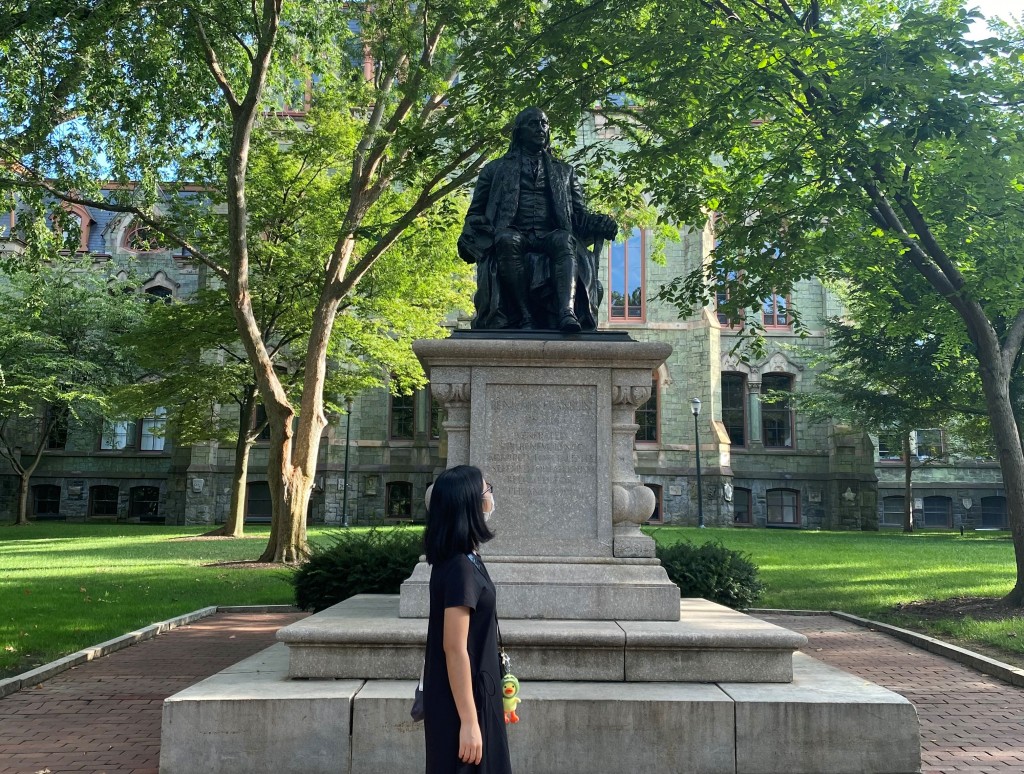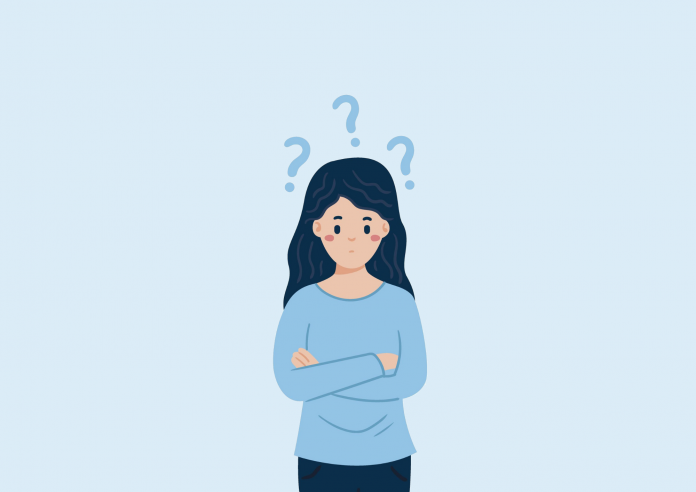After getting through long application processes, you finally received an offer letter from your dream university to pursue a graduate study there. You accepted it, and prepared for departure. Upon arriving at the university and starting your journey as a graduate student, you suddenly felt doubtful about yourself, questioning whether you deserve to be there in the first place. Jessie, a Master’s student in Behavioral and Decision Science, will discuss how to deal with this challenge.
Studying abroad is a wonderful experience, but it does come with challenges. One challenge that might be not so obvious to others is self-doubt.
Simply put, self-doubt is when you feel uncertain or lack confidence in your abilities. You might have received a bad grade or harsh feedback and wondered whether you really deserve to be there. Your classmates seem to have no trouble in speaking up in class whilst you are still trying to comprehend what the professor just said – making you question whether you have what it takes to excel.
If you have ever felt this way, you are not alone. Since I started my graduate studies at the University of Pennsylvania, one of the oldest universities in the United States, there have been some moments where I feel insecure about myself. One of them was during the first two weeks of school, where everyone was making introductions. A lot of my classmates had worked in well-known institutions, while I was just this girl who had finished undergraduate studies two years prior, followed by a mere 1.5 years of work experience. They all seemed to know what they were doing. During my first class, I felt intimidated by others’ proactiveness and fluency in sharing their opinions, as well as their knowledge of the subject at hand.

People applying for schools and recent graduates looking for work may also find themselves experiencing self-doubt. Fierce competition, multiple rejections, unknown situations, social comparison, and pressure to succeed are some factors that fuel self-doubt.
We might not be able to eliminate self-doubt from our lives, but we manage it. Here I share several strategies that have helped me deal with self-doubt, in hopes that they would also help you.
Remember what you have gone through
In highly stressful situations, it is easy to be overwhelmed by the challenges in front of us and feel helpless. Negative self-talk occurs, and sometimes we somehow forget that we have successfully gone through hard situations before.
Since it is easy for us to forget, we need reminders. One way to do this is to keep a list of our achievements and the struggles that we have successfully overcome. I keep a folder filled with appreciation messages from my close friends, ex-colleagues, and mentors – not for vanity, but as a reminder when things get tough.

Have counterarguments ready
For each negative thought, there is always a counterargument we can adopt. Instead of thinking “I don’t deserve to be here”, we can say “I am here because people saw something in me”. Instead of thinking “I’m stupid because I don’t understand this”, we can say “This is a new thing for me and that’s okay, it is an opportunity for me to learn”. As for myself, I countered “I’m the least knowledgeable person here” with “Yes, I might be less knowledgeable, but that means I can benefit more from this learning experience”.
Stop comparing yourself with others
One of the causes of self-doubt is social comparison. We doubt ourselves because we believe we cannot do something the way other people do it or worry that we cannot reach the same level of success. The thing is, each person is uniquely shaped by their prior experience and training, and therefore our journey and ideals are different. It would not be fair for us to compare ourselves with someone else. As others have their own strengths, we also have some of our own. In addition, we cannot control their journey – but we can control ours and write our own.

Evaluate your expectations
Self-doubt is often related to the feeling that we need to live up to others’ or our own expectations. While we cannot change what people think of us, we can control our own thoughts. Some unrealistic expectations that I have come to know first-hand include wanting to be perfect and to be a superwoman that is capable of everything. Setting realistic expectations for ourselves, while also giving ourselves space to grow, can help steer us away from self-doubt.
Talk with someone you trust
Do not be afraid to seek support and share your thoughts with loved ones or someone you trust. How we see ourselves do not necessarily reflect how others see us. They might be able to provide a different perspective and reassurance. I told a friend about how intelligent and confident my classmates seemed during our first meeting. She told me that it is normal for people to want to show themselves – as they are figuring out their place and trying to make friends – and that this will later tone down as weeks go by.
By confiding in others, we might even discover that we are not alone in this – they might have had experienced or are currently experiencing the same thing too. There was one time I had to do a review of a scientific paper, but I could barely understand its statistical analysis. The reviews were posted on a discussion board and other people’s posts read well. No one had a hard time, I thought. Several weeks later, I casually talked to two separate classmates about it, and they told me that I was definitely not alone in my struggle. After that, we became more open to asking for help from each other when we had difficulties understanding course materials.

Be kind to yourself
Sometimes we are each our own worst critics. I used to take pride in being able to be very critical of myself, in the so-called spirit of improvement. Being self-aware and wanting to improve ourselves is one thing but being overly critical of ourselves sometimes does more harm than good. We should recognize that is it okay to make mistakes – we are all human. It is okay to not have things figured out yet – life is not a race.
***
Photo credit: author, freepik, marissafayecohen, unsplash








